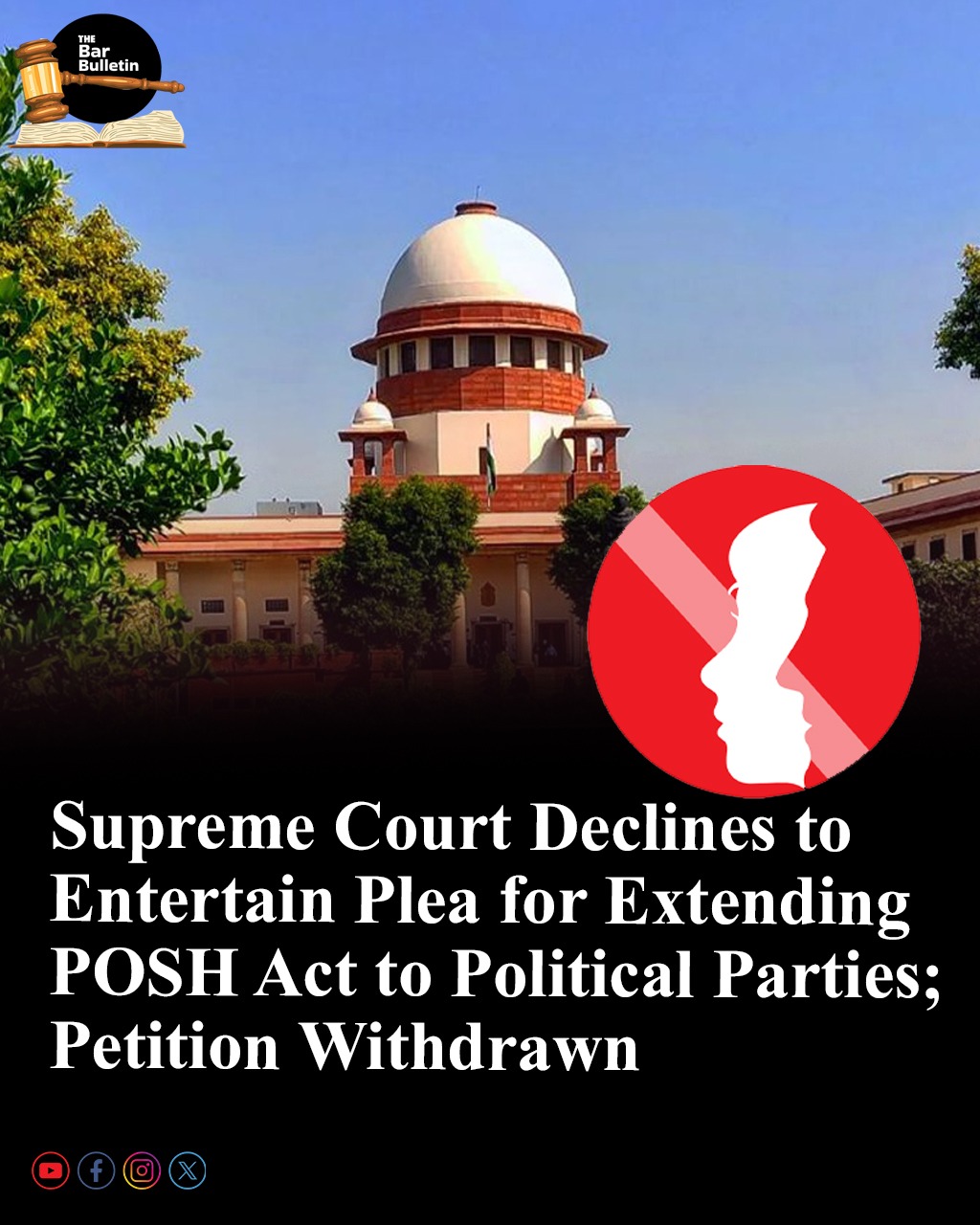The Supreme Court refused to entertain a writ petition seeking the extension of the Sexual Harassment of Women at Workplace (Prevention, Prohibition and Redressal) Act, 2013 (POSH Act), to women political workers and volunteers in political parties and associated organisations. The Bench, after a brief hearing, allowed the petitioners to withdraw the plea while granting them liberty to pursue alternate remedies, including representations to government or legislative authorities.
The petition, led by a collective of women political volunteers, challenged the longstanding exclusion of women political workers from the protection and redressal mechanisms under the POSH Act. The petitioners argued that the current legal framework leaves a significant section of women who engaged in political work but not formally employed by parties, exposed to sexual harassment without effective recourse.
They stressed that power dynamics, physical and sexual abuse, and absence of any Internal Committee or institutional protocol in political parties often deter survivors from complaining or securing justice. The plea was motivated by recurring public reports of sexual harassment within party structures and campaign offices, and the lack of any statutory requirement for parties to implement safeguards for non-employee women contributors.
During the hearing, the petitioners cited the fundamental right to equality and workplace safety, contending that the POSH Act’s limited applicability contradicts constitutional guarantees and undermines the spirit of gender justice. The petition invited the Supreme Court to either declare that the Act already covers political parties, or to issue guidelines under Article 142 to fill the legislative vacuum until Parliament intervenes. The petition drew attention to international practices where political parties are mandated to provide complaint committees and obligatory redressal of workplace harassment, regardless of workers’ employment status.
The Bench comprising Chief Justice B.R. Gavai and Justice K. Vinod Chandran, however, declined to expand the operative scope of the POSH Act through judicial directions, observing that the relief sought involved legislative policy, which is the domain of the Parliament or government.
The Bench clarified that, in the absence of explicit statutory inclusion of political volunteers, the Court could not, by judicial fiat, rewrite the law’s coverage or impose new obligations upon political parties. Accordingly, the Court permitted withdrawal of the petition, allowing the petitioners to approach appropriate forums or seek statutory amendments if so advised.
This development leaves the current statutory position unchanged: the POSH Act applies only to women in an employer-employee relationship or persons engaged in a formal workplace, excluding volunteers and non-employee political workers.
Women activists and political observers have expressed hope that the public focus generated by the petition will galvanize legislative debate about closing this gap and ensuring robust safeguards for all women in political life.
Appearances:
For the Petitioner(s): Ms. Shobha Gupta, Sr. Adv.; Mr. Sriram P., AOR; Ms. Komal, Adv.; Ms. Jyoti, Adv.; Mr. Anandhu, Adv.; Ms. Maneesha, Adv.
![]()



